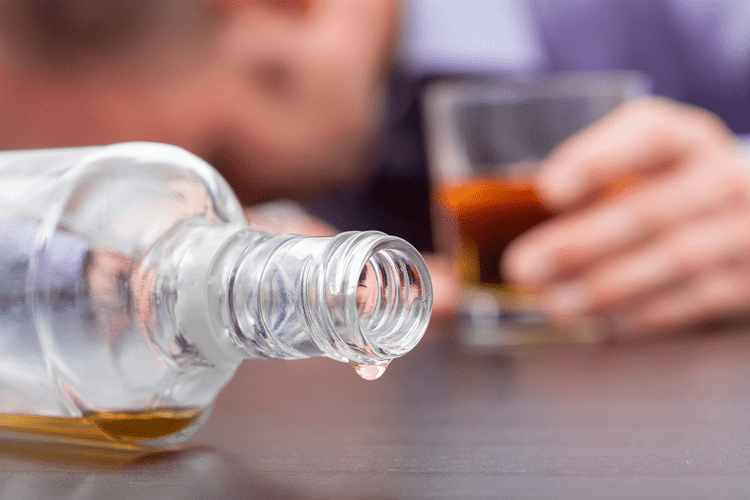Seven Myths About Alcoholism
Content
- Myth #1: I Do Not Have a Problem Because I Can Hold My Liquor
- Myth #5: Drinking is a Good Way to Take the Edge Off My Chronic Pain
- Myth #5: There isn’t a problem if they only drink wine or beer
- Myth #3: Suffering from Alcoholism Means you’ve ‘Hit Rock Bottom’
- Rehab for alcohol use disorder is a waste of time.
- Myth 3
This is caused by an increase in the uptake of another neurotransmitter, called GABA. Keep in mind that most people with addiction who experience a recurrence will return to recovery. Also, people who get help before addiction is severe have more resources to draw upon, https://ecosoberhouse.com/ such as supportive family or a job, to help them successfully recover. Repeated alcohol use seriously disturbs sleep and makes it difficult to re-establish a normal sleep pattern. Often, this leads to more drinking or to sedative abuse in the quest for sleep.
- Frankly put, abusing any kind of alcohol is not good for your health.
- Contact us today to find out which program might be right for you, or to begin the process of arranging for treatment.
- Some may binge drink occasionally, some may only drink on the weekends, and some may drink until the point of deep intoxication to cope with stress.
- What is a healthy range of drinking for men and women over age 65 years?
- Around 119,000 emergency room visits each year are by 12–21-year-olds for alcohol-related injuries.
The same study found that blue-eyed Americans of European descent had the highest levels of alcohol misuse, suggesting a genetic link that makes them more susceptible to AUD. According to a 2015 study, light-eyed Americans of European descent consume more alcohol than dark-eyed Americans of European descent. These overwhelming impulses help explain the compulsive and often baffling behavior around addiction.
Myth #1: I Do Not Have a Problem Because I Can Hold My Liquor
A different sickness could easily keep a person home from work. At 1st Step Behavioral Health, we strive to make your addiction treatment experience as comfortable as possible. At our alcohol rehab facility in Pompano Beach, we have seen case after case of successfully finishing rehab for a long time. That alone shows that rehab isn’t a waste of time, and it should be looked into by anyone who is suffering from alcoholism and would like to quit.
An Australian longitudinal study conducted between 2010 and 2016 concluded that there was no evidence behind the idea that parents supplying underage children with alcohol reduces alcohol-related harms. This is why it is crucial to get help so you avoid further problems for you and your family/friends. Treatment options like family therapy and counseling can be an excellent way to overcome addiction while keeping a supportive group .
Myth #5: Drinking is a Good Way to Take the Edge Off My Chronic Pain
Unfortunately, the effects of alcohol use during adolescence can lead to long-term alcohol addiction problems during adulthood. While we sometimes think of teenagers as young adults, the teenage years are acritical timefor brain development. Research shows that the impact of underage drinking on the adolescent brain can be devastating. Teenagers who drink have been shown to score lower on tests that measure intellectual ability than those who do not drink. Not only are there subjective differences in scores and intellectual performance, but alcohol can also physically impactyouth brain development. Some areas of the brain are physically smaller in teens who drink when compared to teens who do not, and these teens are more likely to have problems with attention, self-regulation and impulsivity. Another common myth about underage drinking is that it does not increase teen suicide rates.

There is often peer pressure to drink, to be a part of the crowd. Alcohol myths not only prevent people from getting the help they need but also reinforce stereotypes about it. Click each of the myths below to show the facts about alcohol.
Myth #5: There isn’t a problem if they only drink wine or beer
Yet, we never say an overweight person deliberate inflicted a heart attack on him/herself. In addition to helping you stop drinking alcohol, Bedrock Recovery Center also provides therapy, support groups, and education to help you successfully quit drinking. Many people assume that once people with alcohol addictions get treatment, they’ll be able to drink occasionally with no consequences.
You’d probably be better off drinking lots of water and taking aspirin. There are so many misconceptions about alcoholics, and this is one of the biggest ones. People believe that there’s no coming back from intense alcoholism, and if you’re an alcoholic you’ve somehow hit “rock bottom”, meaning that life simply cannot get any worse. Brittany has been working in behavioral health since 2012 and is the Assistant Clinical Director at our facility.
Myth #3: Suffering from Alcoholism Means you’ve ‘Hit Rock Bottom’
These can be impaired for several hours after you stop drinking. This is why it is never safe to drive after you have been drinking, no matter how many cups of coffee you have. Most people need to drink more than a moderate amount to relieve pain.
Still, that doesn’t mean there are not misconceptions about the substance. People who binge drink may only occasionally drink in excess. And while they may not necessarily have alcohol use disorder, regular binge drinking could lead to developing alcohol use disorder. A person does not have to drink in excess every day and all day to be an alcoholic. There are alcoholics who can go without having a drink for days or weeks at a time. Some may binge drink occasionally, some may only drink on the weekends, and some may drink until the point of deep intoxication to cope with stress. Each of these patterns is indicative of a person who may be an alcoholic.
Rehab for alcohol use disorder is a waste of time.
Are a man and have more than 4 drinks a day or more than 14 drinks in a week. That’s why, at Kingsway Recovery, we create a custom treatment plan tailor-made for each person that comes to see us and their needs. The idea of Sober October actulaly started in the United Kingdom as a way to raise money for people with cancer. Alcohol-attributable deaths are the third-leading preventable cause of myths about alcoholism death in America. According to the Centers for Disease Control and Prevention, 88,424 people die from alcohol-related causes each year in the United States. Women who are dependent on alcohol are 50 to 100 percent more likely to die from alcohol-related causes than men who are dependent on alcohol. Research suggests that rates of alcohol use and high-risk use increased between 2001 and 2013.

